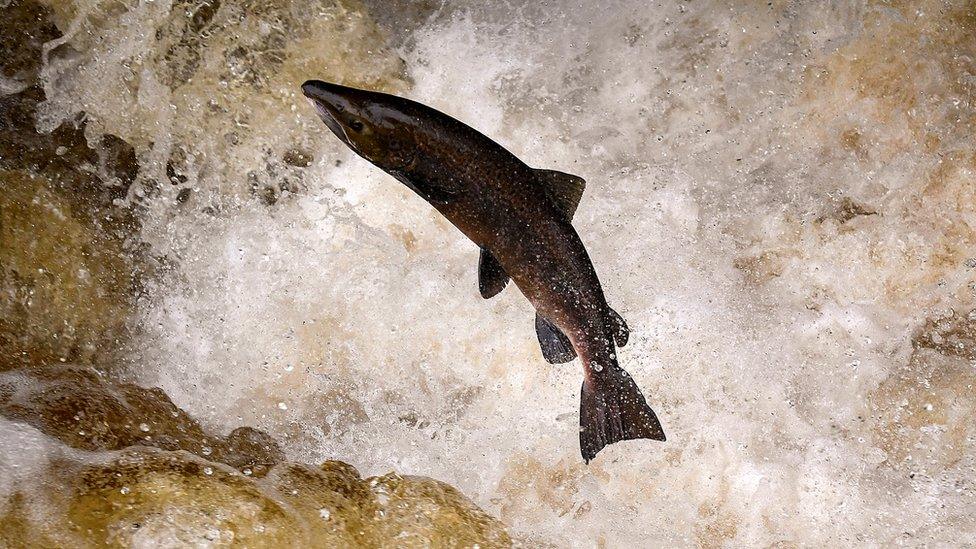Dorset wild salmon study aims to tackle species decline
- Published
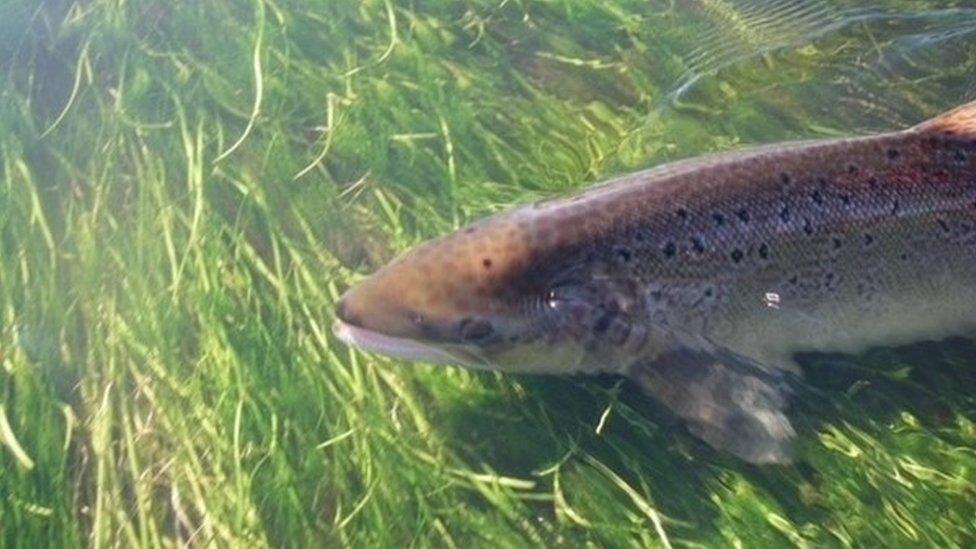
Salmon numbers are not sustainable in 74% of rivers in England and Wales, according to the Environment Agency
Conservationists have been surveying salmon in a Dorset river in a bid to tackle a huge decline in the species.
Around 13,000 fish in the River Frome have been captured, tagged and weighed as part of an annual study.
The month-long survey between Evershot, near Dorchester, and Poole Harbour is carried out by the Game and Wildlife Conservation Trust.
The charity said pollution and climate change were among the causes of the drop in both salmon and trout numbers.
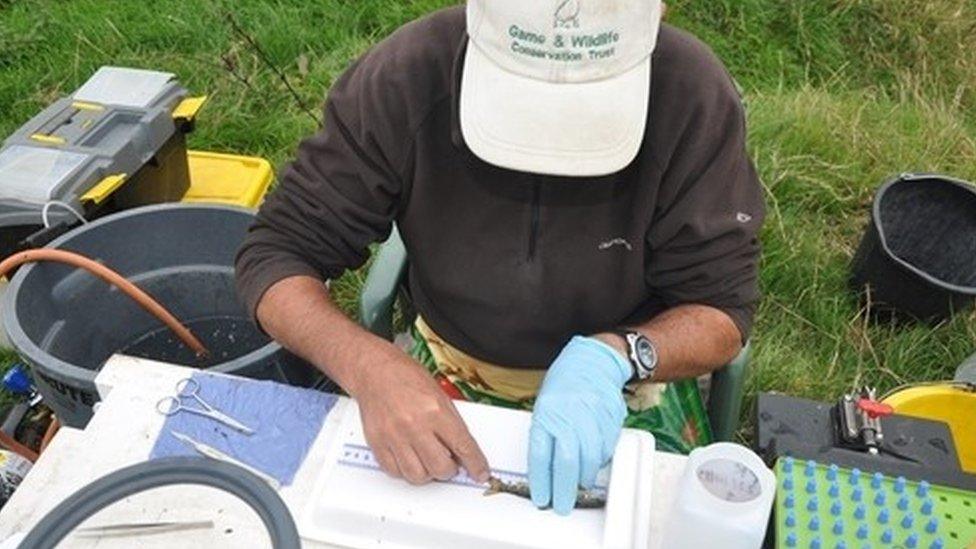
Juvenile salmon are tagged and weighed
Dylan Roberts, the charity's head of fisheries, said: "If you went back to the 1970s and 80s, about 15-20% of the salmon that went to sea would return as adults - now that figure is about 4-5%.
"We have more intensive farming, lots of problems with sewage in rivers, and that is affecting the quality of the young salmon when they get to sea. They are much smaller - so are less likely to survive."
The team used a low-voltage electric field to stun the salmon and trout which were captured and recorded on site before being returned, unharmed, to the water.
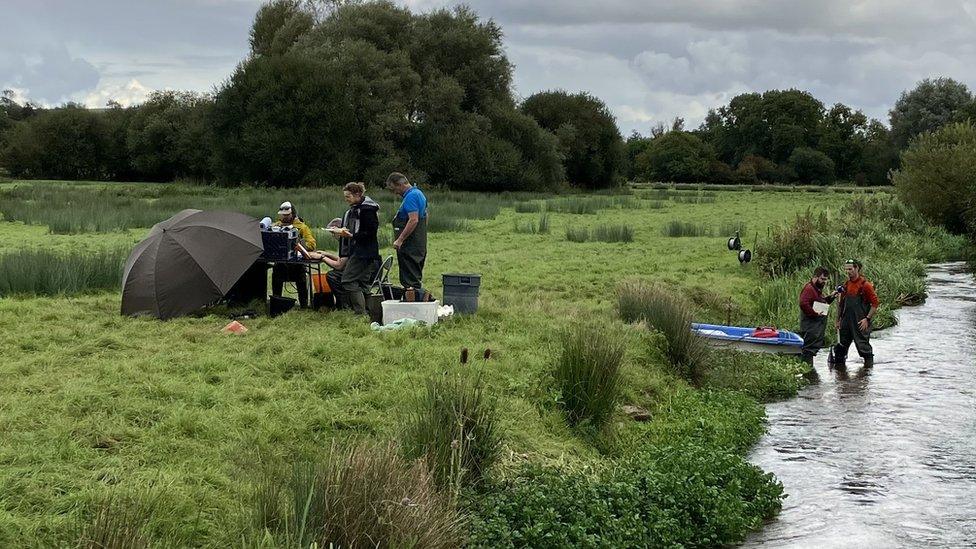
The study covers the stretch of river between Evershot and Poole Harbour
Data from the River Frome and 11 other European rivers is used to inform governments, and to encourage farmers and water companies to improve their operations.
In 2022, an Environment Agency report revealed salmon stocks were below sustainable levels in 74% of rivers in England and Wales.
The Environment Agency said a "great deal" had been done to protect fish stocks but climate change, marine exploitation and barriers to fish passage were affecting the numbers returning from the sea to spawn.
A spokesperson said: "Coordinated action between governments, partners and industry will be needed to alleviate the combined impact of these pressures and prevent the extinction of this iconic species in our lifetimes."

Follow BBC South on Facebook, external, Twitter, external, or Instagram, external. Send your story ideas to south.newsonline@bbc.co.uk, external.
Related topics
- Published13 July 2023
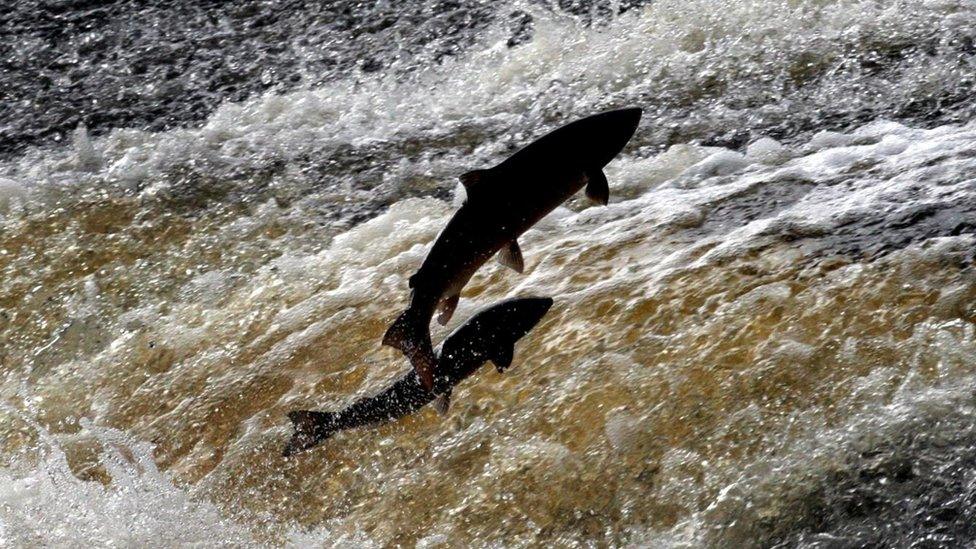
- Published31 May 2023
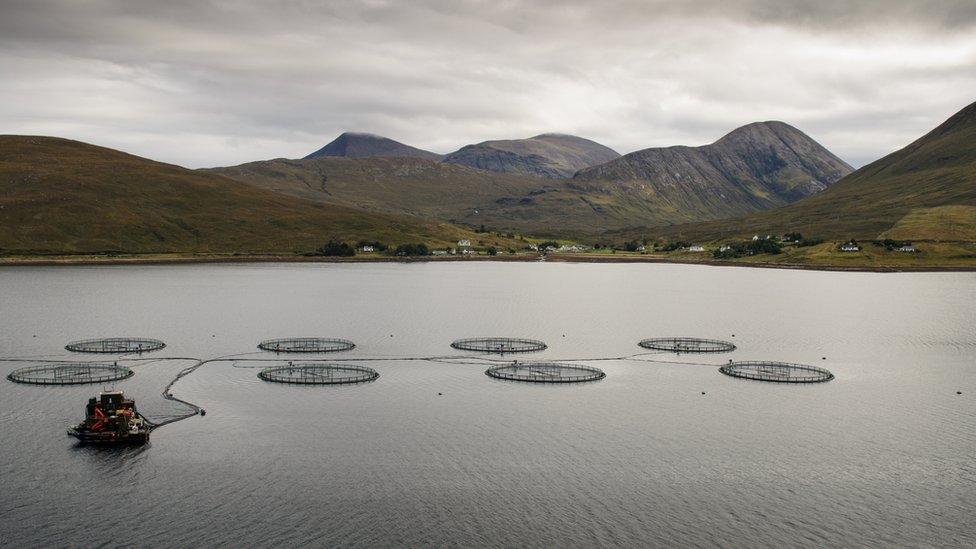
- Published26 July 2022
